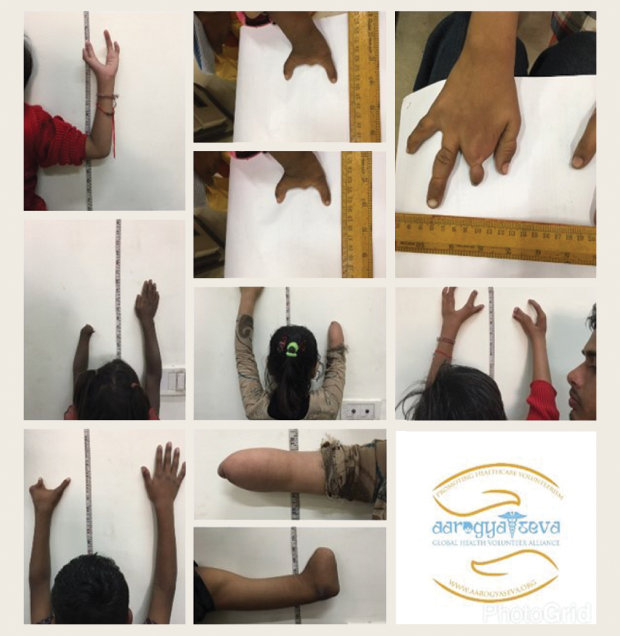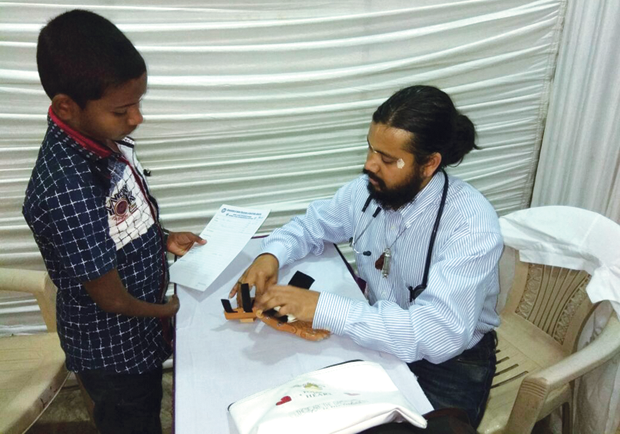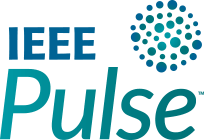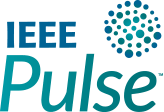With fewer than 800,000 doctors to meet the needs of a population of 1.3 billion people, India is confronting an immense healthcare challenge. Simply put, how can more people get access to quality, affordable medical care in whatever state or territory they happen to live? This question holds relevance not just in India, but in all regions of the world where doctors are in short supply.
The answer to that question, according to the Doctors For Seva-Arogya Foundation (also known as Aarogyaseva), lies in merging the power of technology with volunteerism to provide low-cost medical care that reaches more people in more places. The foundation, named for the Sanskrit word seva, which refers to selfless service, is built around a flexible, customizable microvolunteering platform that enlists healthcare providers and volunteers to extend free medical services to more than 100,000 underserved beneficiaries in India, the United States, Rwanda, Mexico, Nepal, Haiti, and elsewhere.
Aarogyaseva Initiatives and Volunteer Programs
Examples of Aarogyaseva initiatives include programs focused on elder care, mental health, disaster response, women’s health, rural health, and pediatric health. Doctors, psychiatrists, nurses, and volunteers interested in helping out can simply go to the Aarogyaseva website; there, they can describe how often, where, and in what ways they would like to contribute, ranging from volunteering their administrative and logistic support to donating medical supplies and money to participating in seva events (or even volunteering in spirit only). Then, with the click of a button, they are registered with the organization. Within a few days, volunteers are contacted by Aarogyaseva staff and assigned to a particular event or initiative. In the past year, more than 50 volunteers have registered to take part in ten different events.
Doctor at School, conducted every few weeks, is Aarogyaseva’s comprehensive child-health program with strong support from pediatricians, the Indian Academy of Pediatrics, volunteers, counselors, institutions, and government agencies. Every few months, Aarogyaseva also conducts Medical-Yatra @Aarogyaseva, with volunteers spending five to 15 days in remote or disaster-hit areas. So far, 15 Medical- Yatras have been conducted in different locations across India.
Over the years, the foundation has developed deep insights into the needs, (i.e., disease prevalence), challenges (i.e., reachability, availability of primary health care, and demographic constraints), and priorities in health care. These insights are extremely helpful in identifying meaningful initiatives and implementing them successfully in a timely manner.
Aarogyaseva founder and director Dayaprasad Kulkarni, a medical doctor, public health specialist, entrepreneur, artist, and development consultant, has also created the Global Health Volunteer Alliance, a U.S.-based nonprofit group made up of more than 25,000 medical professionals, as well as Tech4Health, based in Bangalore, India. Similar to Aarogyaseva, Tech4Health is an open-source microvolunteering platform with the goal of developing affordable medical technology through the power of collaboration and innovation.
Working with volunteers and other nonprofits since mid-2016, Tech4Health seeks to bring together technologists and innovators to collaborate, share research, and create relevant, affordable health tech solutions. Current areas of interest include child health, women’s health, elder care, health education, humanities in health care, rural health, mental health, devices and diagnostics, surgical tools and instruments, disaster and humanitarian aid, and assistive technology.
For example, a new app aimed at reducing suicides by alerting psychiatrists of troubling social media posts is undergoing trials. Another proposal involves developing a national cancer registry, while a different proposal aims to solve the last-mile medical supplies delivery challenge, as well as the sample-collection challenge in conflict zones or disaster-hit areas, using drones.
Another team is looking for volunteers to carry out field trials of a novel national child-growth monitoring system, in which monthly records of children’s vital growth parameters are recorded and uploaded to the cloud. Measuring growth parameters (i.e, height, weight, pulse oximetry, heart-lung sounds using a custom- built device, blood-sugar level, head circumference, and more) has been simplified and largely automated, now requiring less than one minute per child. Having data in the cloud provides analytics that can be used to determine specific needs and evaluate the effectiveness of all initiatives.
3-D Limbs as an Access Case Study
One of the most popular initiatives involves Tech4Health’s three-dimensional (3-D)-printed prosthetics project. Disability is an important public health problem globally, with an estimated 35 million people living with some form of limb loss, according to the World Health Organization. India accounts for nearly 10% of that burden, with 2.6 million people living with a disability according to the 2011 census. A majority of the disabled reside in rural areas where accessibility, availability, and the use and cost-effectiveness of rehabilitation services are major challenges. With some exceptions, the situation for people with disability in urban areas resembles rural areas. Only a dismal 5% have access to prosthetic care. Research on disability burden, appropriate intervention strategies, and the implementation of those strategies in the present context of India is necessary to improve the quality of and access to health care for the disabled.
The advent of 3-D-printable prosthetics is changing the face of medicine, with the availability of low-cost 3-D desktop printers now introducing high-tech science into the homes and garages of laymen and providing as significant a technological revolution as personal computers, laptops, or smart phones when they first became accessible.
Internationally, a custom-built titanium prosthetic may cost up to US$40,000. Most often, a reasonable alternative to that expensive solution, costing only a few tens of dollars, can be built using 3-D printing technology. Further, such prosthetics can be easily printed again if they break or if patients outgrow them.

Tech4Health, through the Gift of Hand Project, has been involved in bringing this technology to low- and middle-income countries by printing and fitting 3-D-printed prosthetics free of cost since 2016 (Figure 1). The project aims to give student entrepreneurs opportunities to innovate further and create a global movement and a community of makers, tinkerers, artists, designers, humanitarians, teachers, parents, children, engineers, occupational therapists, medical professionals, philanthropists, inventors, and everyday people who can use 3-D printers and design skills to create free 3-D-printed prosthetics and prototypes for those who need them (Figure 2).

Children receiving prosthetic hands are actively involved in the process of fostering better acceptance and increased use of the hands and forging a bond of trust that encourages feedback. That feedback helps to better address the issues those with disability face and also helps make children inventors and designers in their own right. Thus far, more than 400 3-D-printed prosthetics have been fitted by Tech4Health.
Aarogyaseva and Tech4Health, in consultation with the IEEE Bangalore Chapter Student Section at M.S. Ramaiah Institute of Technology, has received a grant from the IEEE Foundation to adapt its basic workshop on 3-D printing and prosthetics for one-day events to be held at various locations over the next ten months. IEEE volunteers have done the adaptation, and two events have been conducted so far (Figure 3).
Each is promoted on social media, local radio, and print media, as well as through the efforts of partner groups. Every event includes two 90-min sessions, followed by a hands-on assembly workshop lasting up to 3 h. The sessions include an introduction to 3-D printing, the impact of science and technology in low-cost innovation, and the role of the IEEE, as well as hands-on printing.
The IEEE Foundation grant also supports the provision of basic 3-D printers at four new partner organizations for the term of the project, during which participants will meet regularly after the workshop and build real 3-D-printed hands for recipients identified by Aarogyaseva and its partner organizations (Figure 4).

A two-day convention will be hosted in Bangalore in December 2018; participants will be invited to make presentations, share lessons learned, showcase 3-D printed products, and demonstrate impact.


